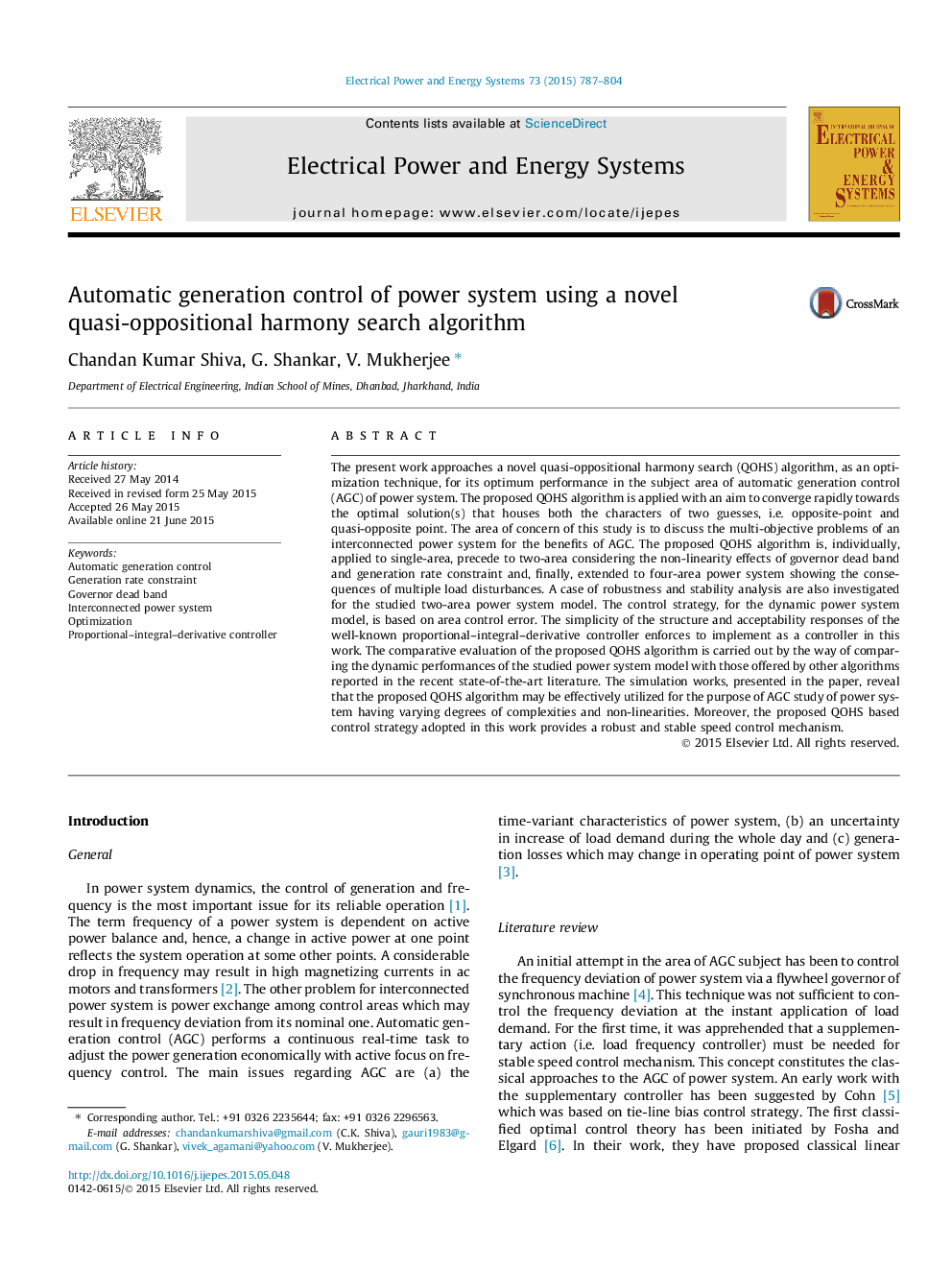| Article ID | Journal | Published Year | Pages | File Type |
|---|---|---|---|---|
| 399284 | International Journal of Electrical Power & Energy Systems | 2015 | 18 Pages |
•Modeling of single-, two- and four-area power system for AGC study.•Incorporation of PID controller in the designed power system model.•Effects of GRC and governor dead band in two-area model are studied.•A novel QOHS algorithm is proposed for the design of PID controller.•Effects of multiple SLP for four-area hydro-thermal model are studied.
The present work approaches a novel quasi-oppositional harmony search (QOHS) algorithm, as an optimization technique, for its optimum performance in the subject area of automatic generation control (AGC) of power system. The proposed QOHS algorithm is applied with an aim to converge rapidly towards the optimal solution(s) that houses both the characters of two guesses, i.e. opposite-point and quasi-opposite point. The area of concern of this study is to discuss the multi-objective problems of an interconnected power system for the benefits of AGC. The proposed QOHS algorithm is, individually, applied to single-area, precede to two-area considering the non-linearity effects of governor dead band and generation rate constraint and, finally, extended to four-area power system showing the consequences of multiple load disturbances. A case of robustness and stability analysis are also investigated for the studied two-area power system model. The control strategy, for the dynamic power system model, is based on area control error. The simplicity of the structure and acceptability responses of the well-known proportional–integral–derivative controller enforces to implement as a controller in this work. The comparative evaluation of the proposed QOHS algorithm is carried out by the way of comparing the dynamic performances of the studied power system model with those offered by other algorithms reported in the recent state-of-the-art literature. The simulation works, presented in the paper, reveal that the proposed QOHS algorithm may be effectively utilized for the purpose of AGC study of power system having varying degrees of complexities and non-linearities. Moreover, the proposed QOHS based control strategy adopted in this work provides a robust and stable speed control mechanism.
